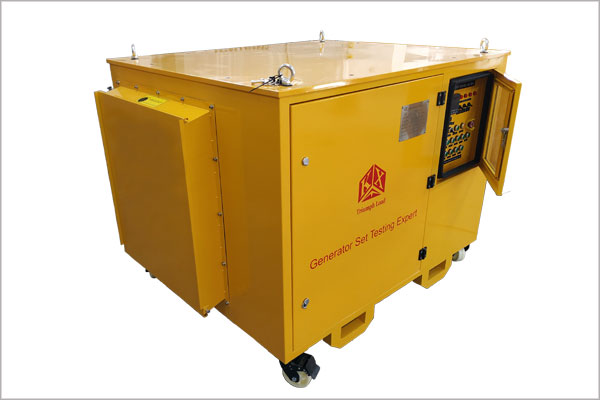How to select the AC power radiator
How to select an AC power radiator
According to the power consumption, the thermal resistance between the connecting point and the shell, the thermal resistance between the shell and the radiator, the temperature of the connecting point of the AC power amplifier and the ambient temperature, the thermal resistance of the radiator is calculated. In addition, it also involves the problem of fan forced air cooling, so the general radiator is selected based on the characteristic data of cooling wind.

500kW load bank
Finally, the AC power radiator chosen is 202 mm wide x 200 mm long x 30m high with a base thickness of 5 mm.
Install the AC power amplifier, install 4 fans side by side in the discharge direction, and power on. With a slow increase in power, the case temperature of the AC power amplifier will rise to 70 °C when the power reaches about 100W.
Therefore, four fans were added in the opposite direction of the blowing air to allow for increased air volume and increased static pressure. The power continues to increase slowly, and when it reaches about 120W, the housing temperature rises to about 70 ℃.
In this case, the temperature distribution of the AC power radiator is confirmed. From the confirmation results, only the temperature near the power amplifier increased, indicating that the heat was not sufficiently diffused.
The distribution of ambient temperature difference relative to the temperature of the heated part
In order to further promote the heat diffusion of AC power supply, a copper plate with high thermal conductivity is pasted on the radiator with heat sink paste. After adding copper plate, the heat dissipation effect was improved by about 30W, but no further progress was made.
Increase the thickness of the base. Therefore, a general purpose radiator with a basic thickness of 10 mm is prepared, which is close to the limit of the height limit.
This is an AC power radiator with a width of 154 mm x length of 200 mm x height of 30m and a base thickness of 10 mm.
Once worried about whether there will be any impact after the reduction of the area, but after the actual power is turned on, it is found that when the power reaches 200W, the temperature is successfully controlled at about 70 ℃. It seems that the thickness of the base diffuses heat.
The final conclusion is that increasing the thickness of the base is more effective than enlarging the radiator area when the heating part of the AC power supply is concentrated in a very narrow space range.
